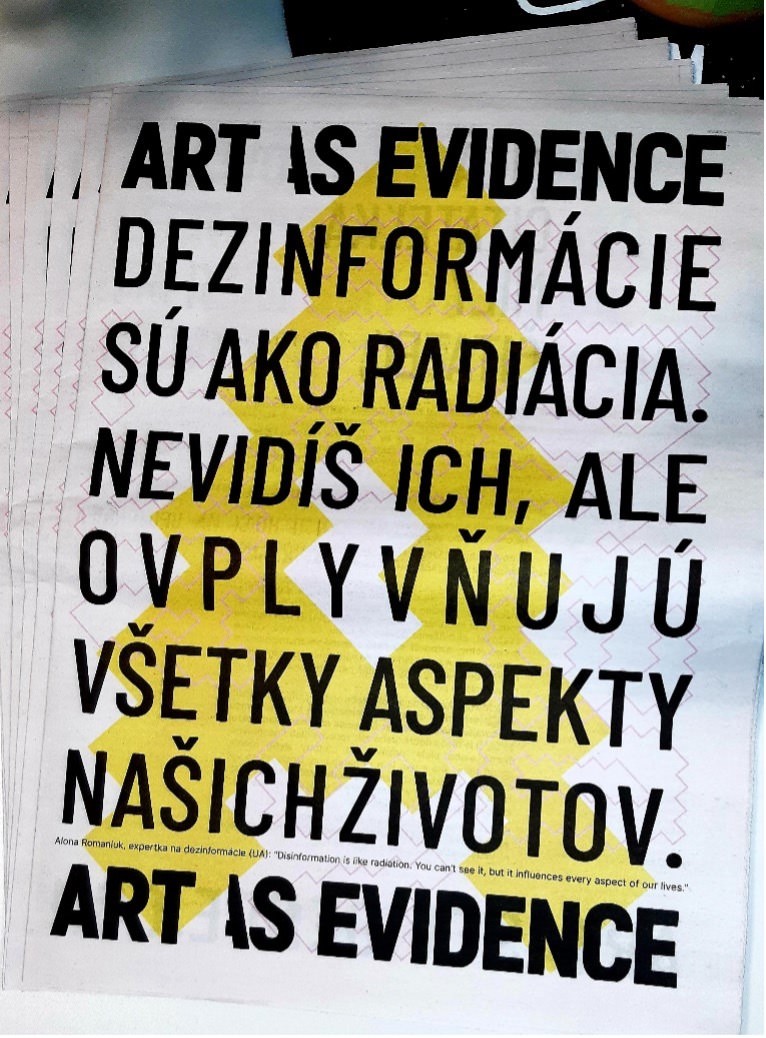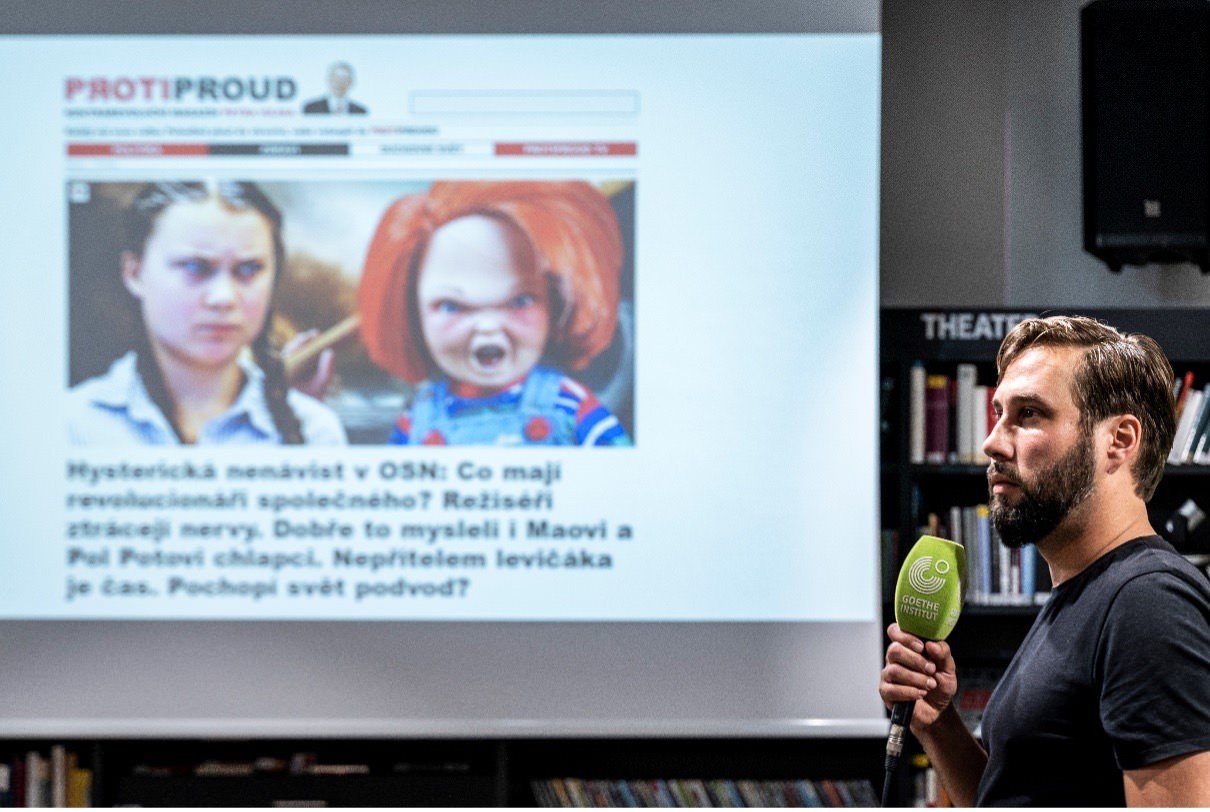How can we counter misinformation, propaganda and fake news appropriately? The EUNIC Cluster project Art as Evidence (AaE) approached this question through critical journalism, art, education, design and research. The deliberate manipulation of information is one of the greatest challenges of our time, as it is used as a tool for populism, anti-Semitism, xenophobia and other extreme political views. The aim of the AaE was to create an open space for learning, testing and experiencing different formats that promote critical thinking, fact-checking and the development of media literacy. 5 EUNIC members, 6 local partner institutions and many other highly engaged contributors and participants made it possible.
The kicked off with a workshop held in collaboration with Ukrainian journalists Alona Romaniuk and Kyrylo Beskorovainyi on ways to combat Russian propaganda. Further events took place between September and November 2023, including a game jam, a reading, a conference and a film screening followed by a panel discussion. AaE aimed to produce a series of formats that move between artistic, educational and journalistic methods and open them up to a broad audience. An innovative approach was taken with the aim of encouraging as many people as possible to engage with the function of fake news and to find their own approach to the topic.
Disinformation is like radiation. You can’t see it, but it influences every aspect of our lives.
Alona Romaniuk, Expert for disinformation
An important group of people for the project were young people between the ages of 15 and 20, as they are already growing up with social media, spend a lot of time in digital spaces and are therefore the largest target group for digital manipulation. In the kick-off workshop, they were encouraged to learn practical strategies for detecting and analyzing fake news, and were also taught techniques for evaluating the credibility of sources, verifying information and critically engaging with news.
Multidimensional educational approaches
Another event for students was a three-day game jam organized by the Bratislava game studio Mlady Pes and the Slovak Game Developers Association. During these days, participants were able to actively express their own point of view and share it with others through their own text-based game on the topic of disinformation and propaganda. The game jam format was presented as an invasive and innovative educational format that thinks of gaming as a medium for critical learning processes.
An often discussed field of communication that was explored with AaE is that of influencers. Youtuber Duklock was brought on board to discuss strategies for viral communication and explain the visual and content-related differences to fake news. AaE broke down the boundaries between journalism, gaming, education and the influencer world with its variety of formats, actors and methods.
The event formats always focused on journalistic work, whether as an author, director or researcher. The local newspaper Kapitál Noviny accompanied the project period with articles and interviews on the topic of disinformation. The sub-projects should be seen as individual parts of an overall project that not only aimed to raise awareness of fake news and propaganda, but also to initiate long-term cooperation between various actors in order to raise awareness of political education and democratic participation.
Collaboration
All activities concluded with the screening of the documentary film "What did you do to the Russians", which was shown as part of the One World Documentary Film Festival Bratislava. The screening and the subsequent panel discussion with the directors Jana Bučka and Michal Fulier showed once again that cultural results offer irreplaceable added value for the negotiation of complex issues.
A summarizing, but also longer-term result is the AaE project newspaper as well as the project website. Both take up the visual concept in addition to the content focus, function as a reservoir for all outcomes and put the inputs up for dealing with the topic beyond the project period.
To accompany the project phase, IPAO (Inštitút pre aktívne občianstvo) created educational materials that pick up on aspects from the workshops and enable the topics to be discussed further in lessons and other learning situations. AaE can thus be seen as an impetus for long-term engagement with the topic and has successfully created new links between EUNIC cluster members, local partners and the civilian population in the Bratislava region.



